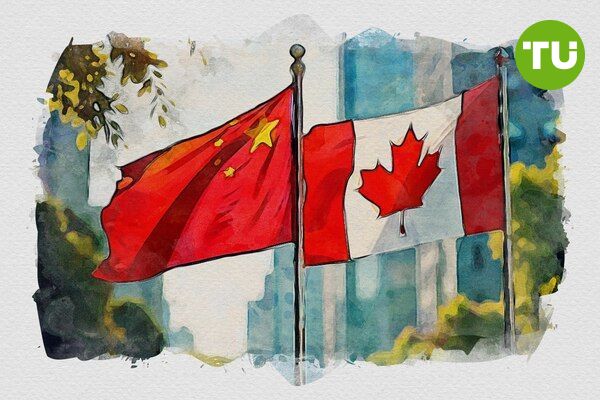China raises tariffs on Canadian imports
 Beijing hits Canadian agriculture and food exports with retaliatory tariffs
Beijing hits Canadian agriculture and food exports with retaliatory tariffs
China has announced tariffs on more than $2.6 billion worth of Canadian agricultural and food products, escalating tensions between the two nations amid an ongoing global trade conflict.
The levies, revealed by China’s Ministry of Commerce on Saturday, are set to take effect on March 20 and come in response to Canadian import duties introduced in October on Chinese-made electric vehicles, steel, and aluminum, reports Reuters.
The tariffs closely match Canada’s measures, imposing 100% duties on just over $1 billion worth of Canadian rapeseed oil, oil cakes, and pea imports, and 25% duties on $1.6 billion worth of Canadian aquatic products and pork.
The ministry called Canada’s actions a violation of World Trade Organization rules and accused Ottawa of engaging in protectionism that severely harms China’s legitimate interests.
Strategic Timing and Exclusions
Notably absent from the tariff list is canola, one of Canada’s top agricultural exports to China, valued at $3.7 billion in 2023. Analysts suggest this omission signals Beijing’s willingness to keep the door open for trade negotiations despite launching an anti-dumping investigation into Canadian canola imports last year.
“The investigation on Canadian canola is still ongoing. Its exclusion from the tariff list might be a gesture to leave room for negotiations,” said Rosa Wang, an analyst with agricultural consultancy JCI.
The timing of China’s response, coming more than four months after Canada’s measures, may also reflect strategic calculations. “By striking now, China reminds Canada of the cost of aligning too closely with American trade policy,” said Dan Wang, China director at Eurasia Group.
Implications and Future Outlook
This latest development adds a new dimension to the broader global trade dispute largely driven by U.S. President Donald Trump’s tariff threats. With Canada’s next national election approaching in October, Beijing may also be hoping a change in government could lead to a softer stance on trade issues.
As tensions escalate, the exclusion of canola suggests China may still be open to dialogue, though the path to resolution remains uncertain. Observers will be watching closely for any shifts in policy from Ottawa and Beijing in the coming months.
Earlier, shares of Nintendo Co., the maker of the Mario Kart franchise, fell nearly 9.8% in Tokyo on Friday, marking their steepest intraday drop since August 2024.













































































































































